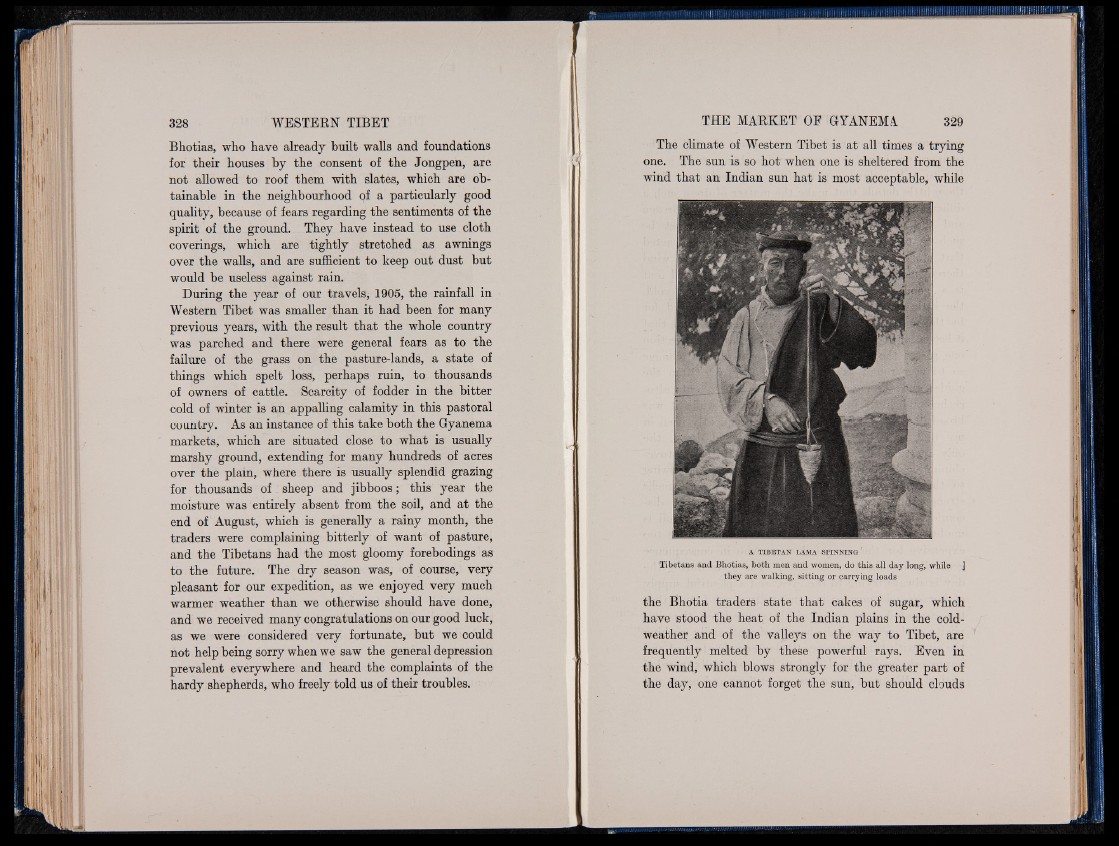
Bhotias, who have already built walls and foundations
for their houses by the consent of the Jongpen, are
not allowed to roof them with slates, which are obtainable
in the neighbourhood qf a particularly good
quality, because of fears regarding the sentiments of the
spirit of the ground. They have instead to use cloth
coverings, which are tightly stretched as awnings
over the walls, and are sufficient to keep out dust but
would be useless against rain.
During the year of our travels, 1905, the rainfall in
Western Tibet was smaller than it had been for many
previous years, with the result that the whole country
was parched and there were general fears as to the
failure of the grass on the pasture-lands, a state of
things which spelt loss, perhaps ruin, to thousands
of owners of cattle. Scarcity of fodder in the bitter
cold of winter is an appalling calamity in this pastoral
country. As an instance of this take both the Gyanema
markets, which are situated close to what is usually
marshy ground, extending for many hundreds of acres
over the plain, where there is usually splendid grazing
for thousands of sheep and jibboos; this year the
moisture was entirely absent from the soil, and at the
end of August, which is generally a rainy month, the
traders were complaining bitterly of want of pasture,
and the Tibetans had the most gloomy forebodings as
to the future. The dry season was, of course, very
pleasant for our expedition, as we enjoyed very much
warmer weather than we otherwise should have done,
and we received many congratulations on our good luck,
as we were considered very fortunate, but we could
not help being sorry when we saw the general depression
prevalent everywhere and heard the complaints of the
hardy shepherds, who freely told us of their troubles.
The climate of Western Tibet is at all times a trying
one. The sun is so hot when one is sheltered from the
wind that an Indian sun hat is most acceptable, while
A TIBETAN LAMA SPINNING ’
Tibetans and Bhotias, both men and women, do this all day long, while
they are walking, sitting or carrying loads
the Bhotia traders state that cakes of sugar, which
have stood the heat of the Indian plains in the cold-
weather and of the valleys on the way to Tibet, are
frequently melted by these powerful rays. Even in
the wind, which blows strongly for the greater part of
the day, one cannot forget the sun, but should clouds